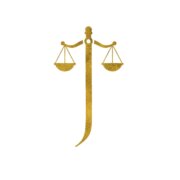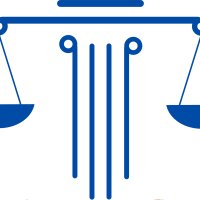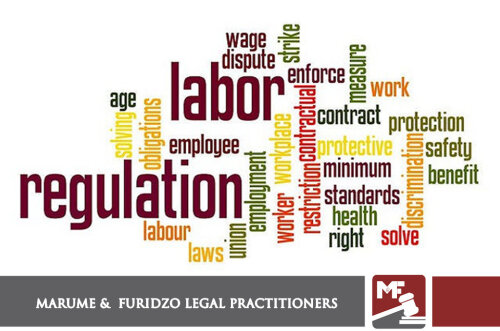Best Family Lawyers in Harare
Share your needs with us, get contacted by law firms.
Free. Takes 2 min.
Free Guide to Hiring a Family Lawyer
List of the best lawyers in Harare, Zimbabwe
About Family Law in Harare, Zimbabwe
Family law in Harare, Zimbabwe, encompasses a wide range of legal issues concerning family relationships, including marriage, divorce, child custody, and guardianship. This branch of law is governed by various statutes, including the Matrimonial Causes Act and the Children's Act, which provide the legal framework for managing familial disputes and protecting the welfare of children and other family members. Family courts in Harare deal with these matters, aiming to ensure fair outcomes while keeping the best interests of minors and family members at the forefront.
Why You May Need a Lawyer
Individuals may require legal assistance for several reasons within the field of family law. Some common situations include navigating complex divorce proceedings, ensuring fair distribution of marital assets, establishing child custody arrangements, seeking protection from domestic violence through restraining orders, and arranging spousal or child support. Additionally, family lawyers can offer guidance in adoption processes, guardianship cases, and prenuptial or postnuptial agreements to safeguard assets and define terms for future contingencies.
Local Laws Overview
The legal framework for family law in Harare includes several key aspects:
- Marriage and Divorce: Governed by the Matrimonial Causes Act, which stipulates the grounds and procedures for divorce. Zimbabwe recognizes civil, religious, and custom-based marriages.
- Child Custody and Guardianship: The Children's Act and relevant court systems prioritize the child's best interests, considering both parents' rights and responsibilities.
- Domestic Violence: The Domestic Violence Act provides measures and protections for individuals experiencing abuse, including the provision of protection orders.
- Adoption: Governed by the Adoption Act, which sets out the legal requirements and processes for adopting a child, ensuring their well-being and best interests.
- Inheritance: Governed by the Administration of Estates Act, detailing the distribution of a deceased person's property, particularly protecting minors' inheritance rights.
Frequently Asked Questions
What are the grounds for divorce in Zimbabwe?
Common grounds for divorce include adultery, irretrievable breakdown of the marriage, and physical or emotional abuse. The court requires proof to validate the claims presented.
Who gets custody of children in a divorce?
Custody decisions are made based on the best interests of the child. Factors such as each parent's ability to provide, the child's preferences, and stability play crucial roles.
Can a spouse claim maintenance after divorce?
Yes, spousal maintenance can be claimed and awarded based on factors like the duration of the marriage, the needs of each party, and their ability to earn a living post-divorce.
How is property divided in a divorce?
Property division is guided by principles of equitable distribution, aiming for fairness rather than equality, often considering each spouse's contributions, needs, and potential future requirements.
What protection is available for domestic violence victims?
Victims can seek protection orders through the courts under the Domestic Violence Act, which provides legal remedies and support measures to ensure their safety.
How does one apply for child adoption?
The Adoption Act requires prospective adopters to apply through family courts, undergoing thorough assessments to ensure the suitability for providing a stable and loving home.
Can a prenuptial agreement be enforced?
Yes, prenuptial agreements are enforceable, provided they meet legal standards and are entered into voluntarily, fairly, and with full disclosure of each party's assets.
What rights do unmarried parents have concerning child custody?
Unmarried parents have similar rights and responsibilities as married parents in terms of custody and support, emphasizing the child's welfare above marital status.
Who can be appointed as a guardian for a child?
A guardian can be any responsible adult willing and able to care for the child's interests, often appointed by a court based on suitability and relationship with the child.
How does one contest a will?
Contesting a will involves legal proceedings where interested parties present reasons such as undue influence, lack of testamentary capacity, or fraud to invalidate or alter the document.
Additional Resources
For further assistance, individuals can reach out to the Ministry of Justice, Legal and Parliamentary Affairs, or the Zimbabwe Legal Resources Foundation. Non-governmental organizations such as the Musasa Project also offer support and resources for domestic violence victims. Family courts and legal clinics may provide additional guidance and support.
Next Steps
If you require legal assistance in family matters, consider consulting with a qualified family lawyer experienced in Zimbabwe's legal system. It's essential to gather your documents and understand your rights and obligations. Engage with local legal aid societies or governmental bodies for initial advice or referrals to reputable family law practitioners in Harare.
Lawzana helps you find the best lawyers and law firms in Harare through a curated and pre-screened list of qualified legal professionals. Our platform offers rankings and detailed profiles of attorneys and law firms, allowing you to compare based on practice areas, including Family, experience, and client feedback.
Each profile includes a description of the firm's areas of practice, client reviews, team members and partners, year of establishment, spoken languages, office locations, contact information, social media presence, and any published articles or resources. Most firms on our platform speak English and are experienced in both local and international legal matters.
Get a quote from top-rated law firms in Harare, Zimbabwe — quickly, securely, and without unnecessary hassle.
Disclaimer:
The information provided on this page is for general informational purposes only and does not constitute legal advice. While we strive to ensure the accuracy and relevance of the content, legal information may change over time, and interpretations of the law can vary. You should always consult with a qualified legal professional for advice specific to your situation.
We disclaim all liability for actions taken or not taken based on the content of this page. If you believe any information is incorrect or outdated, please contact us, and we will review and update it where appropriate.
Browse family law firms by service in Harare, Zimbabwe
Harare, Zimbabwe Attorneys in related practice areas.















